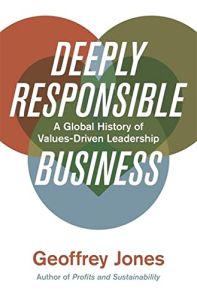
Deeply Responsible Business
A Global History of Values-Driven Leadership
Recommendation
Global businesses focus ruthlessly on profit, exploiting their wealth and position to manipulate politics and the law. Some commentators argue that capitalism has become so greedy it threatens the social order, democratic governance, and the environment. Instead, Harvard professor Geoffrey Jones contends that business leaders and their companies can reimagine capitalism. If they do, they can prioritize its social purpose, deprioritize maximizing profits, and provide more philanthropy. If companies practiced their stated values instead of pursuing power and profits, Jones believes they could help make the world a better place.
Summary
About the Author
Geoffrey Jones is Isidor Straus Professor of Business History at Harvard Business School. He also wrote Profits and Sustainability: A History of Green Entrepreneurship.











Comment on this summary